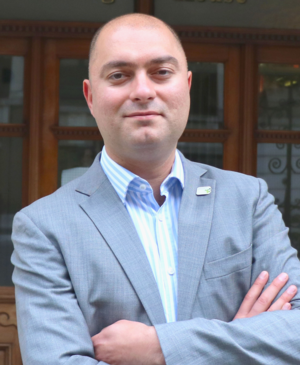 Guest blog by Dr Arash Angadji, Chief Executive, Orthopaedic Research UK
Guest blog by Dr Arash Angadji, Chief Executive, Orthopaedic Research UK
I was talking to a PhD student who has recently received one of our fellowship grants to research the use of statistical modelling to help better predict patient outcomes, who told me, ‘I am part of that generation that has grown up with computers, so It feels natural to ask how we can we exploit this technology. We are all getting more on board with the idea of smart technology and wearable devices and questioning why we are not applying these technologies to our patients.’ She is typical of a new generation of clinicians and researchers entering the musculoskeletal (MSK) discipline who are operating at the intersection of medical and data science. They have seen how artificial intelligence (AI), when applied to data analysis and image interpretation, is transforming the prevention, diagnosis, treatment and management of people with poor MSK health.
This is why our investments in research projects and start-ups are focused increasingly on AI; for example, we have recently invested in a start-up company that uses AI to help clinicians design better fitting prosthetic sockets. This is a typical example of how AI and data science (machine learning) can be used to analyse and find patterns in large datasets within seconds compared to the many months it would take a human researcher. In this case the technology will provide clinicians with invaluable guidance based on analytical data sourced from 3D scans of thousands of patients.
However, to realise the full benefits for our sector, the application of this technology must be broadened and accelerated, and access to data improved. The use of AI in orthopaedics is constrained by a lack of knowledge sharing across the MSK community and by the relatively low profile of orthopaedics within the UK health system. It is noteworthy that the landmark NHSX report on AI does not even mention its use in orthopaedics, with cancer diagnosis and drug development receiving most of the attention. The MSK community needs a seat at the table when the application of AI is discussed by our politicians and health leaders. In common with healthcare in general, the use of AI in orthopaedics is also constrained by difficulties in accessing and using patient data at scale.
 Working alongside our partners within ARMA, we can help address these challenges by facilitating the sharing of information, intelligence and best practice among clinicians, researchers, innovators and entrepreneurs, highlighting the importance of AI to the future of orthopaedics to those in government and other decision makers, and engaging in ongoing initiatives to reform information governance and streamline access to patient data.
Working alongside our partners within ARMA, we can help address these challenges by facilitating the sharing of information, intelligence and best practice among clinicians, researchers, innovators and entrepreneurs, highlighting the importance of AI to the future of orthopaedics to those in government and other decision makers, and engaging in ongoing initiatives to reform information governance and streamline access to patient data.
The conversations of all of us working within MSK health are understandably dominated by concerns about increased waiting lists, treatment backlogs and how demand from an ageing population will continue to outstrip supply. The use of smart technologies to support and enhance clinical decision-making offers grounds for optimism, especially when championed by a new generation of MSK health professionals with a knowledge and appreciation of both medical and data science. I would encourage all of us within ARMA to embrace the opportunity.
16.2.2022
